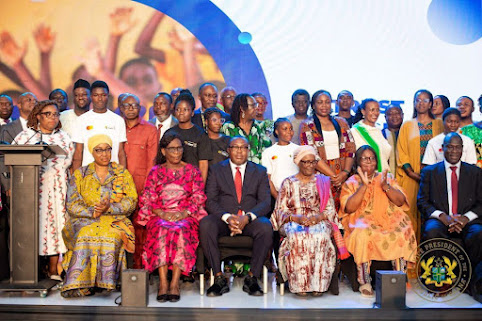Government has reiterated its strong commitment to promoting inclusive and gender-responsive education on the continent, with a renewed focus on youth empowerment and the integration of technology in learning.
This assurance was delivered on behalf of the Vice President of the Republic of Ghana by her Policy Advisor, Dr. Ofosu Ampofo, at the official launch of the Forum for African Women Educationalists (FAWE) Ghana Chapter’s Strategic Plan (2024–2028) and the FAWE-Mastercard Foundation Phase II Program.
The Vice President, who has been at the forefront of efforts to deepen educational access for girls and vulnerable youth, described the initiative as “a clear statement of Africa’s determination to empower its future leaders through equitable and transformative education.” She stressed the need to ensure that from the basic to tertiary levels, education systems are retooled to reflect the evolving demands of the modern world, particularly in Science, Technology, Engineering and Mathematics (STEM), Artificial Intelligence, and Data Science.
The seven-year FAWE-Mastercard Foundation project will span ten African countries, targeting youth between the ages of 15 and 25. In Ghana, it is expected to benefit at least 1,100 young people, both girls and boys through education and leadership development programs.
Chairperson of the FAWE Africa Board, Hon. Aicha Bah Diallo, lauded the Vice President’s unwavering support for education across the continent. In her remarks, she described the Vice President as a “symbol of progress and a tireless advocate for development through education.”
Highlighting the historical journey of FAWE, Hon. Diallo further applauded the former FAWE Africa Board Chair, Professor Naana Jane Opoku-Agyemang, who served in 2017. Under her leadership, the organization received notable continental recognition and played a key role in the development of gender equity strategies aimed at advancing education for African girls.
The Vice President, who played a pivotal role in shaping the Strategic Plan in 2023, emphasized that the document would serve as a roadmap to guide actions toward sustainable educational transformation. She called on stakeholders across sectors, government, civil society, and international partners to collaborate actively to ensure the success of the initiative.
“The project must be a litmus test of our collective resolve to create sustainable and inclusive educational progress. Gender-responsive education is not an option; it is a necessity,” she stated through her representative.
She also expressed concern about the low number of girls entering STEM-related careers and assured of government’s deliberate efforts to bridge the gap, including curriculum reforms, mentorship programs, and investment in digital infrastructure.
By: Stanley Kwabla Arku





